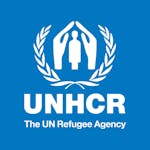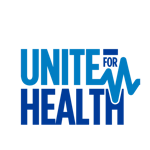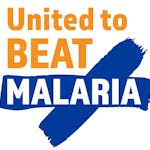COVID-19 is straining the health system in Iran, which is host to 1 million refugees. Moheyman Alkhatavi is a refugee and nurse who works around the clock to help his host community fight COVID-19.
Moheyman Alkhatavi, 24, uses a long, cotton-tipped swab to collect cell samples from the nose of an elderly man. “When I administer the COVID-19 test, I pray and hope that it will come back negative,” he said, speaking at the start of a 12-hour night shift.
“The hardest part of my work is to inform families that their loved ones may not make it to the end of the week.”
Alkhatavi is an Iraqi refugee who works as a nurse at the in-patient ward of the Taleghani Hospital in Iran. As in much of the world, COVID-19 has strained the country’s health system.
Alkhatavi is part of a team of dedicated nurses working tirelessly on rotation to monitor some 50 new patients admitted to the hospital’s quarantine unit each week while they await their test results. He constantly checks his patients’ breathing and other symptoms, trying his best to secure the medicines they need to manage their pain.
“We had two patients who tested positive but recovered,” he said. “This is a small ray of light in an otherwise very stressful time.”
Protecting the most vulnerable
There are close to 1 million refugees in Iran. Since the onset of the pandemic, the government has made every effort to ensure that all refugees have access to the same health services as Iranians, so that they are fully included in the national COVID-19 response.
With over 80% of the world’s refugee population living in low- to middle-income countries —many of which have weak health care systems — UNHCR, the UN Refugee Agency, is prioritizing steps to prevent potential outbreaks that would put extraordinary strain on already fragile local health services. In late March, UNHCR airlifted some 4.4 tons of much-needed medical items, including medicine, to support the COVID-19 response. UNHCR continues to work closely with its government counterparts, other UN agencies including the World Health Organization (WHO), and national and international nongovernmental partners to raise awareness of key prevention measures among refugees and host communities.
Enabling Stronger COmmunities
Alkhatavi says he feels proud to be able to help both people in his host community and his fellow refugees during the public health emergency that has engulfed the country.
“I remember people telling me that, because I was a refugee, I shouldn’t dream to go to university and instead focus on learning an easier trade,” he said. “But I wanted to make a difference in people’s lives.”
Our communities are stronger when everyone has a chance to succeed. UN agencies, national governments, and nongovernmental organizations come together to enable people like Moheyman Alkhatavi to join the united fight against COVID-19.
We are all safer and stronger when we #UniteforHealth. Support the UN Foundation’s work to deliver health for all.
This piece originally appeared on UNHCR.org and has been edited and republished with permission.




 View All Blog Posts
View All Blog Posts

